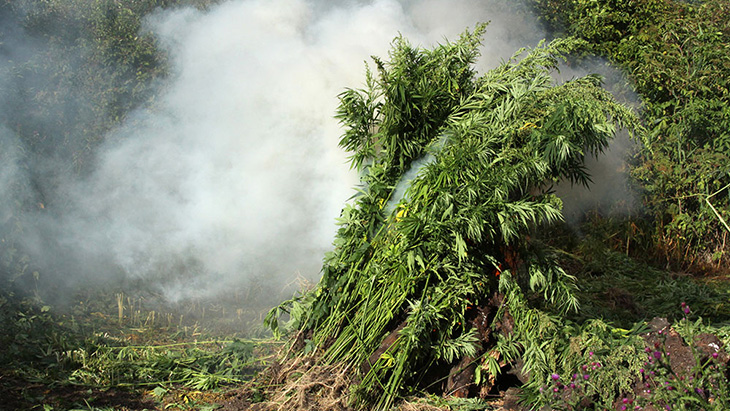 Marijuana seizures along the southern border have fallen over 80 percent since 2013, according to data published this week by the US Drug Enforcement Administration.
Marijuana seizures along the southern border have fallen over 80 percent since 2013, according to data published this week by the US Drug Enforcement Administration.
In the agency’s 2020 National Drug Threat Assessment publication, author’s write: “In US markets, Mexican marijuana has largely been supplanted by domestic-produced marijuana. In 2019, CBP [US Customs and Border Protection] seized nearly 249,000 kilograms of marijuana along the SWB [southwest border], a decline from over 287,000 kilograms in 2018. CBP marijuana seizures along the SWB have decreased more than 81 percent since 2013, when almost 1.3 million kilograms were seized.”
Marijuana seizures at the southern border reached an all-time high in 2009, when nearly four million pounds of cannabis were confiscated by federal agents.
Colorado and Washington became the first two states to legalize the commercial production of marijuana for adults in 2012. Thirteen additional US states have since passed similar laws.
Commenting on the sharp decrease in US demand for Mexican-produced cannabis, NORML’s Political Director Justin Strekal said: “This dramatic shift in the cannabis supply chain is a welcome development. As reformers predicted, when given the option, consumers choose their cannabis to be grown in America. States’ decisions to legally regulate cannabis has, as expected, led to a precipitous drop in demand for imported cannabis and has significantly disrupted the illicit cannabis trade in Mexico. These are important developments to emphasize as additional states continue to discuss replacing cannabis criminalization policies with those that seek to legalize and regulate the marijuana marketplace.”
The full text of the DEA’s 2020 National Drug Threat Assessment is available for download here.

